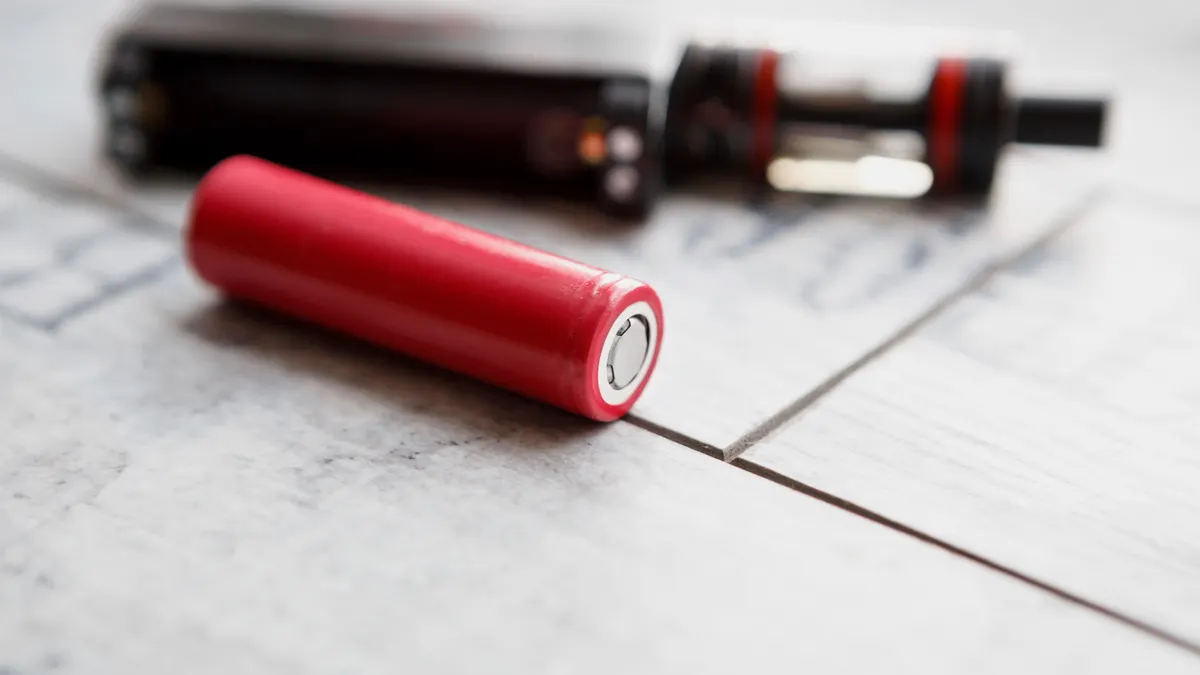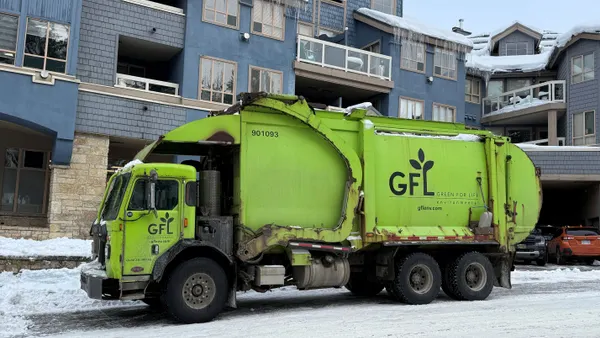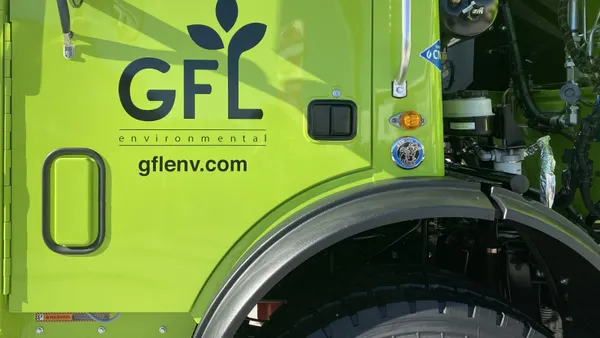Dive Brief:
- The Product Stewardship Institute and the Missouri Solid Waste Management District O have launched a six-month pilot program to collect and dispose of vape waste in Southwest Missouri. It’s the first pilot of its kind in the state.
- The program offers free drop-off sites for vape pens, along with any related pods, cartridges or e-liquid containers. PSI and the solid waste management district will also collect data and suggestions from participants to help understand consumers’ disposal habits.
- Organizers will use the data to develop recommendations for “sustainable, long-term solutions,” which might include expanded collection systems, new statewide policies, or extended producer responsibility laws for the products, PSI said in a news release.
Dive Insight:
Vape pens, also called e-cigarettes, are a leading cause of waste and recycling facility fires due to the lithium-ion batteries inside, PSI said. The devices’ small size makes them difficult to identify on tipping floors and in processing equipment. The vape pens can also leak harmful chemicals including nicotine and certain metals.
State and local agencies say the growing popularity of the devices has burdened schools and municipalities, which aren’t equipped to handle hazardous and combustible devices. The Missouri Department of Natural Resources, a partner in the takeback pilot, sees the vape pens as a “fast-growing environmental and public health threat.”
“This program is about tackling an urgent and growing problem head-on,” said Angie Snyder, executive director of District O, in a statement. The pilot aims to offer “safe, accessible collection options” meant to be a foundation for longer-term collection solutions in the state, Snyder said.
As PSI and District O collect the vapes, they will also focus on “collecting real-world data about vape disposal,” said Hanz Atia, PSI’s senior associate for policy and programs. Organizers will track the volumes and types of vapes collected, and the Computer Recycling Center, a certified electronics recycler, will manage proper handling of the devices.
Atia says PSI will also collect data on safe handling protocols, transportation and disposal costs, and participation levels at each collection site. “That information will help identify the cost drivers and best practices for vape product stewardship,” as well as to help organizers gain insight into what an effective EPR framework could look like for the vapes.
PSI advocates for numerous types of product stewardship initiatives throughout the U.S., including for products such as household hazardous waste, batteries, mattresses, and paint.
In addition to PSI’s current work in Missouri, the organization is advancing another vape collection pilot in New York, Atia said. PSI also worked with Boulder County Public Health in Colorado to develop a program guide based on the county’s already-established vape waste collection program. That guide offers “policy options and best practices so other communities could replicate the model in a cost-effective way,” Atia said.
Though county-level programs aim to make a dent in vape waste challenges, Atia said the topic has also “quickly emerged as a priority issue in state legislatures.” In 2025, four states introduced vape EPR bills, compared to a single bill the previous year, she said.
Though some U.S. municipalities and states may have restrictions on vape sales, regulate their disposal as HHW or have other local disposal rules, vape stewardship programs aren’t common. In Canada, there’s an EPR program for Quebec.
PSI plans to host a stakeholder dialogue to “identify the key elements of an effective vape EPR bill,” Atia said.
This year, Maine’s legislation advanced the furthest and is expected to return in the next session, Atia said. New Jersey, New York, and Oregon also introduced bills this year with what he described as “strong EPR elements, such as permanent collection sites, producer-funded programs, and eco-fee systems.”
Meanwhile, California introduced two “complementary” policies, Atia said: One designed to ban the sale of single-use vapes, while the other aims to allow schools to manage confiscated vapes as household hazardous waste, a move meant to ease disposal limits.
“These show that states are testing both EPR and related policies to address the unique hazards of vape products,” Atia said.














